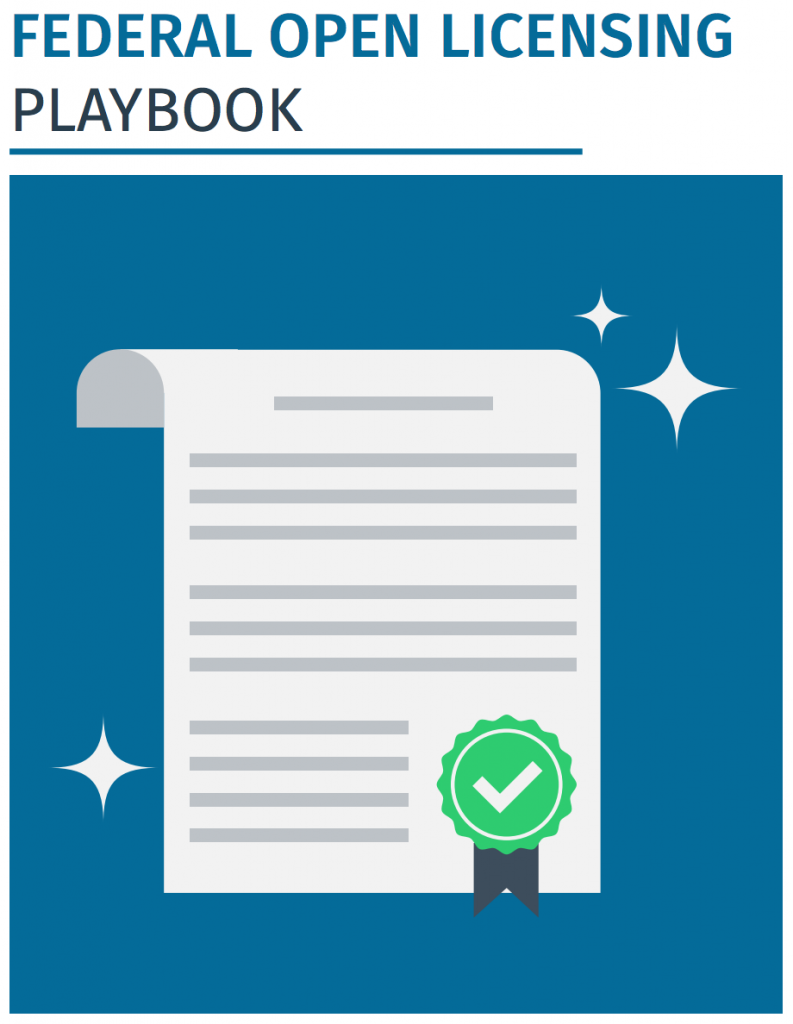Help us protect the commons. Make a tax deductible gift to fund our work. Donate today!

Cover of Federal Open Licensing Playbook, CC0
Today the U.S. Department of State released the Federal Open Licensing Playbook, a list of considerations, use cases, and recommendations for federal departments interested in developing and implementing open license requirements on federally-funded grant projects. It is designed to assist federal efforts to maximize the impact of grant funds, and create opportunities for innovation and collaborative practices using federally-funded resources.
Each of the nine “plays” contains common features, including a checklist, key questions, and examples of use.
Of particular interest is Play 1: Use widely accepted open licenses.
“Whenever possible, you should require grantees to use widely accepted and interoperable open licenses rather than create agency-specific or permit grantee-specific licenses. Customized licenses should only be considered if no existing open license meets the program’s needs. Custom licenses can inadvertently limit the usability of content, because they are often incompatible with each other and with common open licenses. By using widely accepted open licenses, agencies can ensure that their content can be remixed with content from many other sources, including other grant programs and other federal agencies. This also promotes consistency with existing standard practice outside of government. Common open licenses also enable attribution to content creators.
See also Play 3: Make resources adaptable and remixable.
“One of the goals of open licensing is to ensure members of the public are able to create derivatives of openly licensed resources, including by remixing content, translating content, localizing content, and creating accessible versions. There are two key factors for enabling adaptation: ensuring that the open license selected is broadly compatible, and ensuring that the openly licensed materials are in file formats that can be easily edited and tagged.
Creative Commons and other civil society organizations provided key input on the creation of this new open policy tool. The Federal Open Licensing Playbook draws inspiration from similar products developed by other federal agencies, such as the Digital Services Playbook.
The Federal Open Licensing Playbook has been released into the public domain using the CC0 Public Domain Dedication, which means it can be freely reused, customized, and updated by anyone, anywhere in the world, with no restrictions. CC plans to re-purpose the Playbook for use with other governments who also want to ensure publicly funded resources are openly licensed.
Open Licensing Playbook (.doc)
Open Licensing Playbook (.pdf)
Posted 20 January 2017